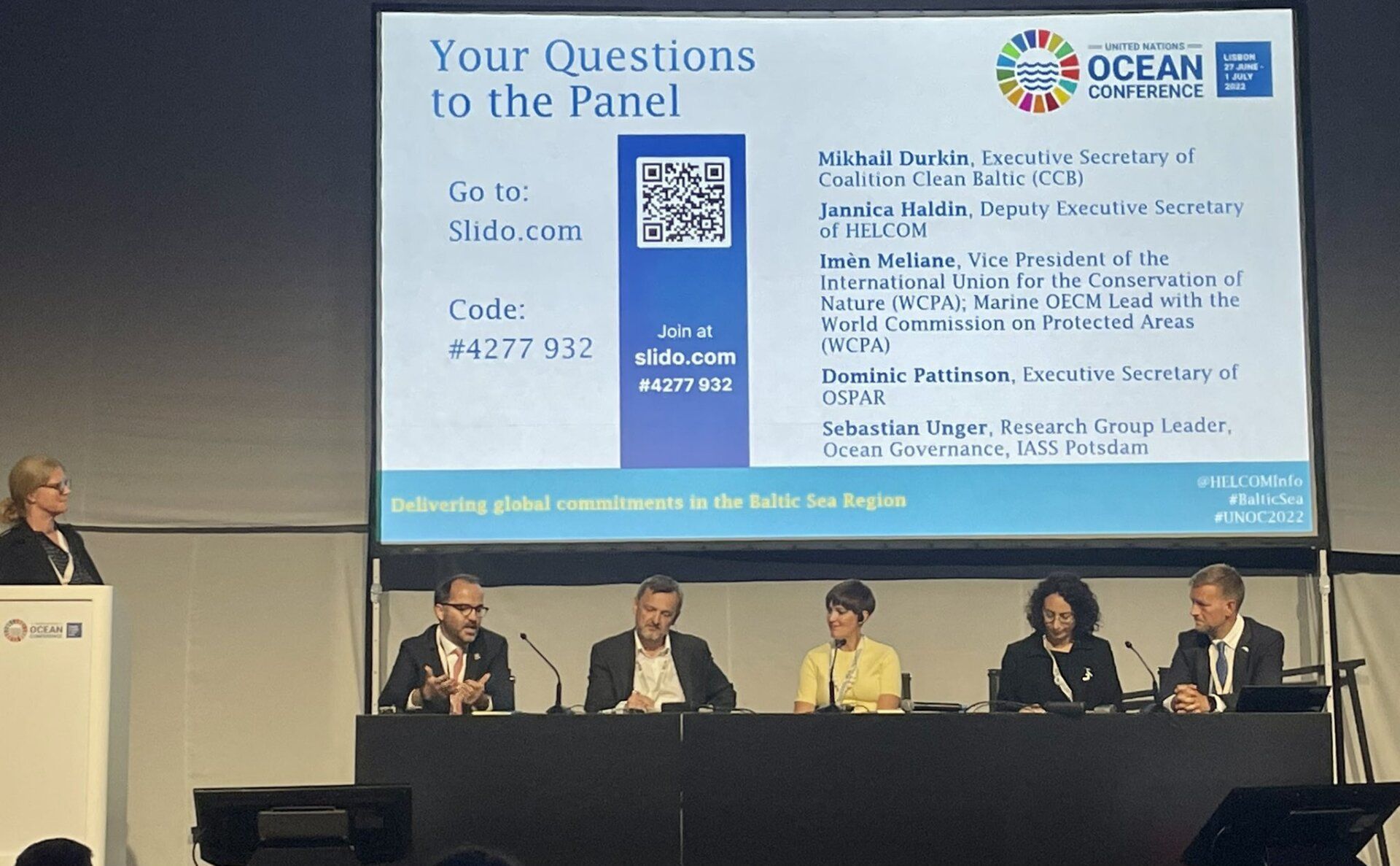Keynote statement of CCB Executive Secretary Mikhail Durkin
Keynote statement of CCB Executive Secretary Mikhail Durkin
at the side event “Delivering global commitments in the Baltic Sea Region” - UN Ocean Conference in Lisbon, Portugal, 30 June 2022

On the occasion of the side event “Delivering global commitments in the Baltic Sea Region” held at the UN Ocean Conference in Lisbon today, Mikhail Durkin, CCB Executive Secretary, made a keynote statement:
Dear friends of the ocean,
Needless to repeat that we are in the midst of a biodiversity and climate crisis. Healthy marine and
coastal life and habitats are essential to our resilience to ecological and climate breakdown. We are dependent on marine and coastal ecosystems to be healthy and rich so that they can perform their natural functions.
Since its creation in 1990, CCB as a network of 27 environmental NGOs from all 11 countries of the Baltic Sea catchment represents over 1.5 million of environmentally concerned citizens. Our vision is similar and supportive to HELCOM’s - to reach good ecological conditions of the Baltic Sea, ensuring its marine and terrestrial ecosystems are able to maintain and sustain biodiversity while also supporting sustainable development in the Baltic Sea Region.
We have repeatedly and clearly stated the demands of our members towards the state of the sea we wish to achieve and lately those were formulated in the Baltic Shadow Plan, developed in collaboration with WWF. It calls for THE BALTIC WE WANT to have enough pristine and wild marine and coastal areas to act as safe havens for animals and plants and to be removed from harmful human activities. With this vision the Baltic NGOs have proposed and contributed to almost one third of 119 actions in HELCOM BSAP.
And in our today’s discussion, our starting point is not about approaches, terms and definitions, that we already have plenty around and that can be quite confusing, if not misleading. Our starting point is with the concrete nature conservation goals and obligations set in the Helsinki Convention and the Baltic Sea Action Plan, in response to global commitments.
[...]
Read the full statement here.
RESOURCES
- The updated Baltic Sea Action Plan (BSAP):
https://helcom.fi/baltic-sea-action-plan/
- The Baltic Shadow Plan: For the future of the Baltic Sea –
http://ccb.se/the-baltic-shadow-plan-for-the-future-of-the-baltic-sea/
- Letter to HELCOM Ministers, NGOs and scientists –
http://ccb.se/letter-from-ngos-and-scientists-calls-to-take-action-for-the-baltic-sea
- Videos about BSAP Update & Baltic Shadow Plan: YouTube Playlist 1; YouTube Playlist 2

